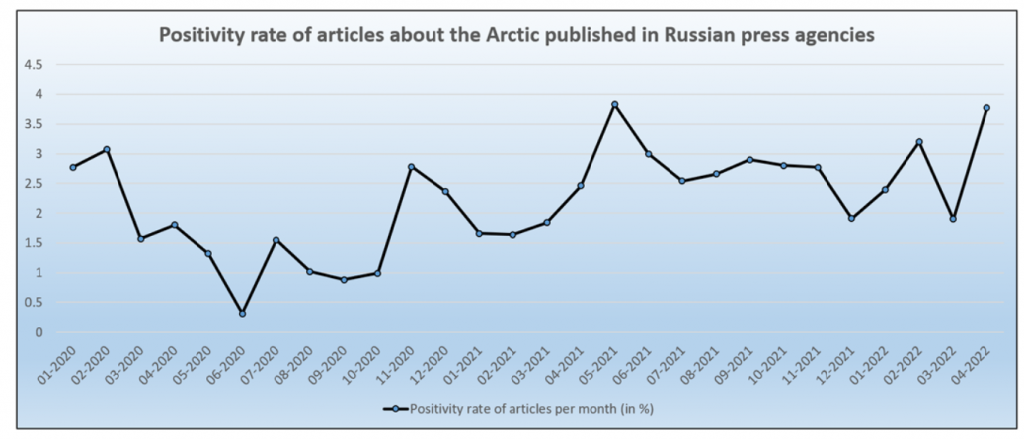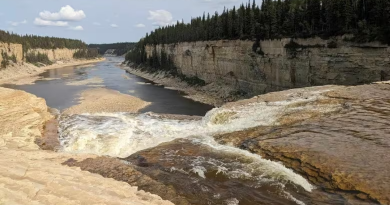Russian media pushing “business-as-usual” narrative in Arctic despite sanctions, say media researchers

The positivity rate in English-language Arctic coverage by Russian press agencies jumped from March to April with Russian leaders making a concerted effort to decouple the Arctic from the invasion of Ukraine, say Canadian researchers who’ve been studying Russian coverage of the North since January 2020.
“We noticed an upswing of articles pushing the narrative that the Arctic region should be depoliticized and that a return to normal was desirable,” said researchers from the Observatoire de la politique et la securite de l’Arctique (OPSA) at the École nationale d’administration publique (ENAP) in Montreal, in their most recent report.
“The Arctic region was presented in rosy descriptions about potential for cooperation, dialogue and partnerships in order dissociate the region from the invasion of Ukraine.”
Russian President Vladimir Putin, Defence Minister Sergei Shoigu and Russia’s top Arctic diplomat Nikolay Korchunov were among the heavy hitters frequently appearing in the media to deliver this message, the report says.

“We know it’s in English for an international audience and what we saw in April was a reorienting of the narrative towards the positive,” Mathieu Landriault, the director of OPSA and an adjunct professor at ENAP, said in a phone interview.
“This is a sign in TASS that they’re trying to put the spotlight on ‘things are not that bad’ and ‘Russian Arctic projects are on track.’ But no, they’re not.”
Projecting a ‘business-as-usual’ message
Businesses opportunities in the Russian Arctic were one of the key talking points and help to explain the higher positivity rate, the report says, with decision makers stressing things like shipping numbers on the Northern Sea Route and investments in Arctic projects in an effort to underplay the impact of sanctions on Russia’s North.
“This is part of a concerted effort to present a business-as-usual front of a cooperative Russia always open to work with other countries even when other events suggest otherwise,” the researchers said in their analysis.

The research project was started in May 2021, with analysis going back to January 2020 and was developed with the Observatoire des administrations publiques autochtones (OAPA).
“We wanted to have a more systematic description of the how the Arctic region is presented to the public through Russian press agencies,” Landriault said.
“Detecting disinformation is one of the most pressing threats to democracy these days and we thought it would be interesting to see if there is disinformation about the Arctic region, what is its nature and what is the intensity of the disinformation.”
Researchers started by analyzing English-language coverage in Russian press agencies Sputnik and TASS, until Factiva removed Sputnik this spring.
“I understand the reason why and I understand companies are maybe wary about being singled out, but for researchers, these are precious resources to study,” Landriault said.
“I don’t think having [Sputnik] means expressing support for it, but it’s important to keep resources available so we can can study the coverage patterns and what the Russian government wants to show to the world.”
The next “Russian Press Agencies and the Arctic” report will be out sometime in the first part of June.
The group’s past reports can be consulted online.
Write to Eilís Quinn at eilis.quinn(at)cbc.ca
Related stories from around the North:
Canada: Canada needs a ‘more consistent’ presence in North to bolster security, Inuit leader says, CBC Radio
Finland: US military refuelling plane flies over Finland day after NATO announcement, The Independent Barents Observer
Norway: Senior Arctic officials working on plan forward amidst Arctic Council pause, Eye on the Arctic
Russia: The geopolitical collapse of the Arctic, Blog by Mia Bennett
United States: U.S. Army poised to revamp Alaska forces to prep for Arctic fight, The Associated Press



